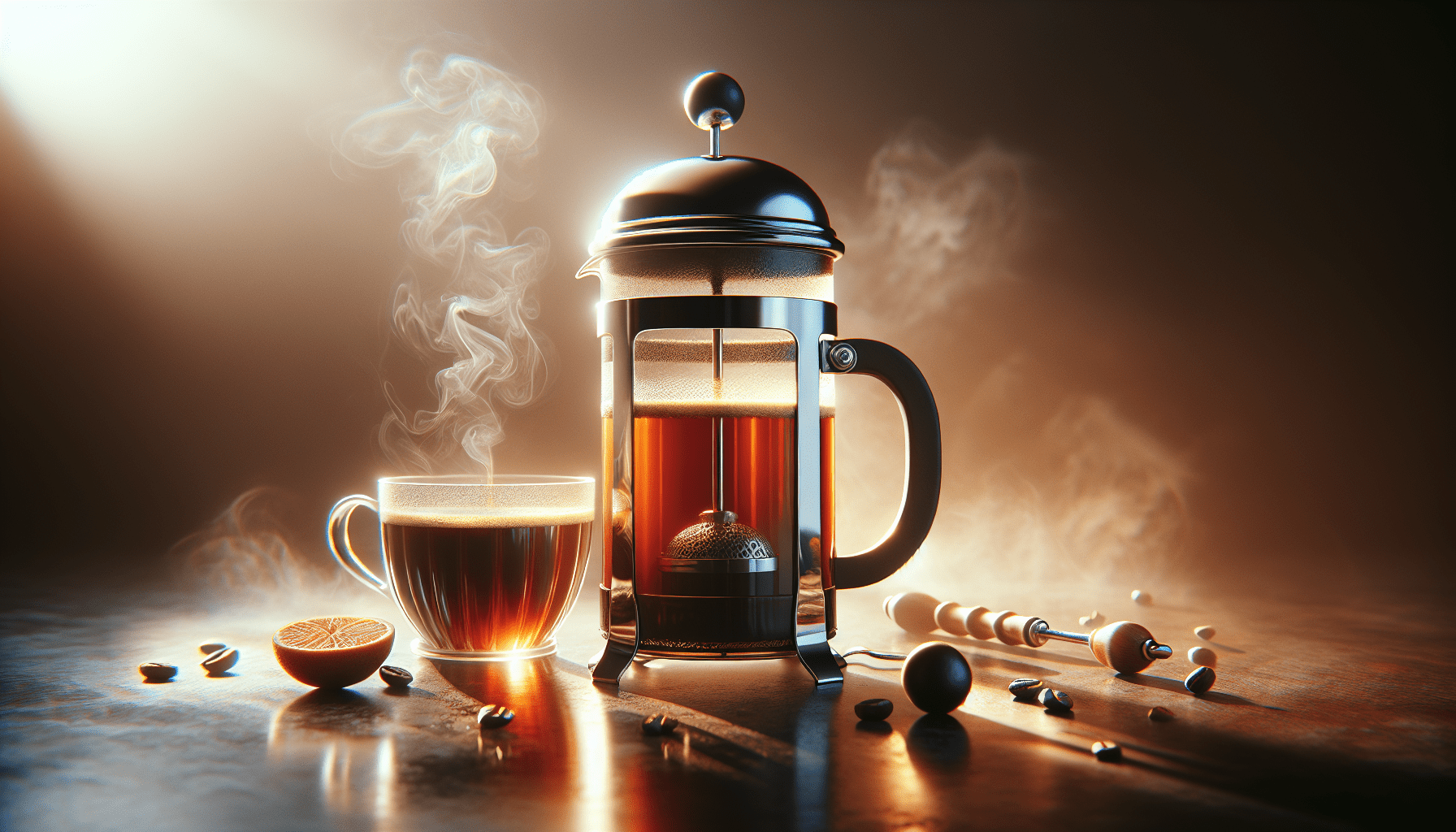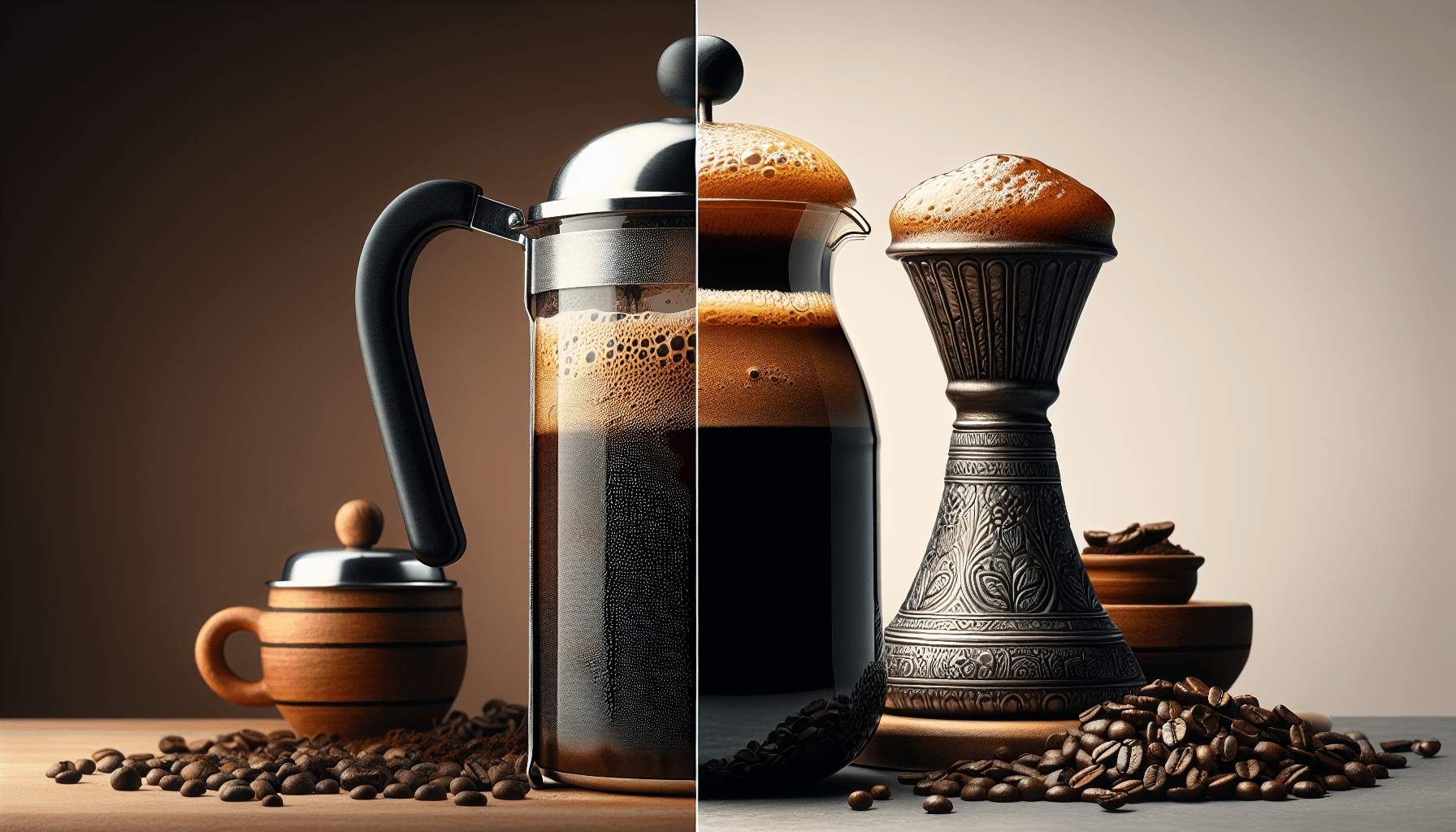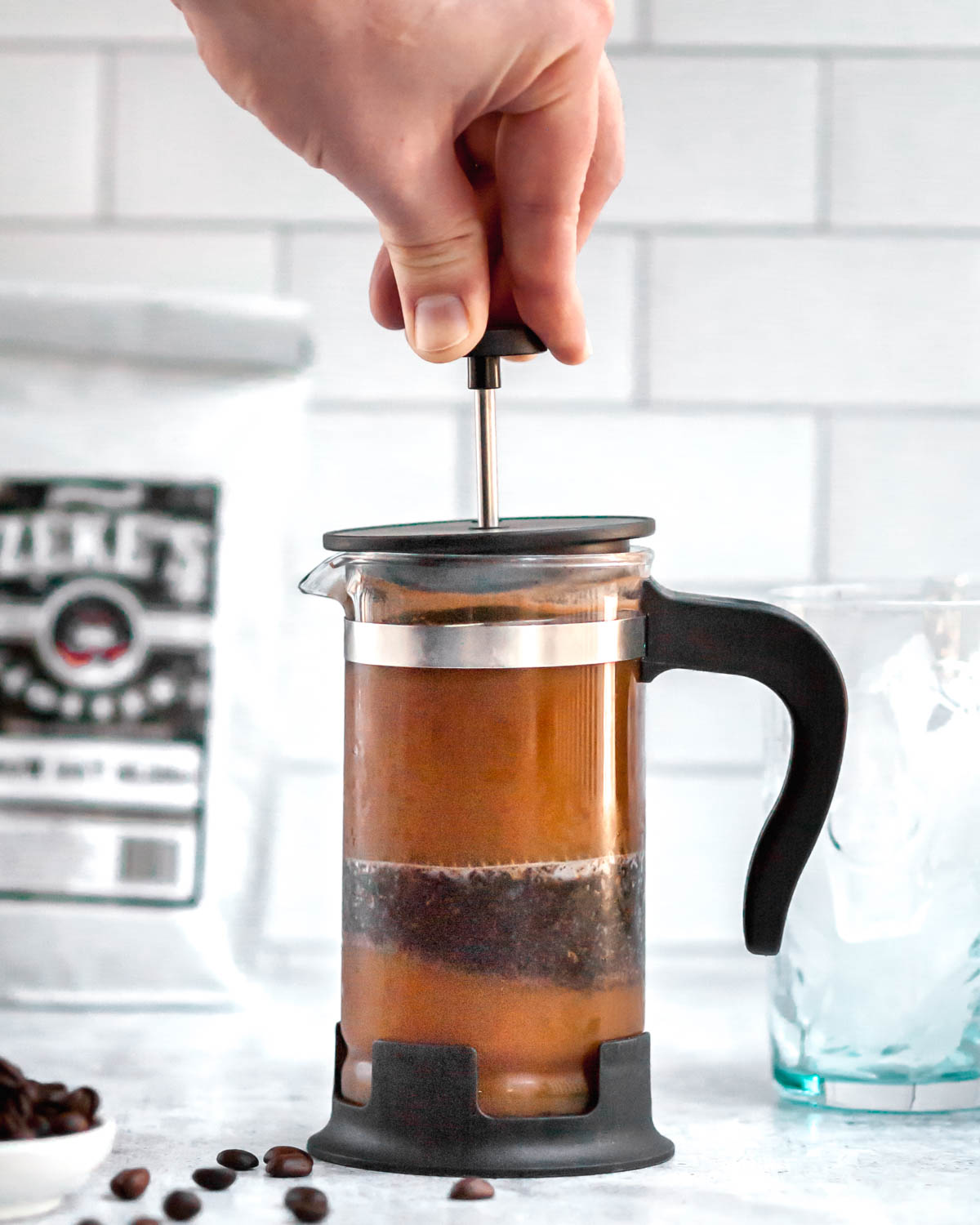Have you ever wondered how long your French press coffee can stay fresh? We all love that rich, bold flavor that this brewing method produces, but sometimes life gets in the way and we can’t finish a whole pot in one go. So, how long can you savor that fresh taste before it starts to lose its magic? In this article, we will explore the lifespan of French press coffee and provide you with some tips on how to keep it fresher for longer. So, grab your favorite mug and let’s dive into the world of French press coffee freshness!
Factors Affecting Freshness
Roast Level
The roast level of coffee can greatly impact its freshness. Lighter roasts tend to retain more of their natural flavors and aromas, making them generally fresher tasting compared to darker roasts. This is because the longer and higher temperature roasting process of darker roasts can cause the oils in the beans to degrade, leading to a loss of freshness.
Grind Size
The size of the coffee grounds also plays a role in freshness. Smaller grind sizes have a larger surface area exposed to air, which can accelerate the oxidation process and lead to faster staleness. Coarser grind sizes, on the other hand, have less surface area exposed and can help to preserve the freshness of the coffee for a longer period.
Coffee Quality
The quality of the coffee beans themselves is another significant factor in freshness. Higher-quality beans, which are typically grown in ideal conditions and processed carefully, tend to have a more vibrant and nuanced flavor profile. These beans are often fresher since they are harvested and processed more meticulously, ensuring that their natural flavors are preserved.
Storage Conditions
The way you store your coffee can also greatly affect its freshness. Exposure to moisture, heat, and light can all accelerate the deterioration of coffee flavors. To keep your coffee fresh for longer, it is essential to store it in airtight containers and in a cool, dark place. This will help prevent exposure to oxygen, moisture, and light, which can all negatively impact the flavor and freshness of your coffee.
Optimal Shelf Life
Whole Beans vs Ground Coffee
When it comes to shelf life, whole beans have a longer lifespan compared to ground coffee. Whole beans can be stored for up to several months while maintaining their freshness if stored properly. On the other hand, ground coffee starts losing its freshness much faster since it has a larger surface area exposed to air. Ideally, it is recommended to grind your coffee just before brewing to maximize freshness.
In-Store vs Home Grinding
In-store ground coffee may have a shorter shelf life compared to coffee that is ground at home. This is because the in-store grinding process exposes the coffee to oxygen for an extended period, leading to faster oxidation and staleness. Grinding your coffee at home right before brewing allows you to enjoy the freshest flavors and aromas from the beans.
Signs of Stale Coffee
Loss of Aroma
One of the telltale signs of stale coffee is a loss of its aromatic qualities. When coffee beans are fresh, they release a pleasant and enticing aroma. However, as coffee ages, this aroma gradually diminishes, leaving behind a lackluster and less appealing scent.
Dull Flavor
Stale coffee often lacks the vibrant and complex flavor notes that are characteristic of fresh coffee. Instead, it may taste dull, flat, and lacking in depth. The natural flavors and nuances that make each cup of coffee unique may become muted and indistinguishable as the coffee loses its freshness.
Bitter or Sour Taste
Over time, stale coffee can develop a bitter or sour taste. This is often the result of oxidation, where the coffee compounds react with oxygen from the air. The longer the coffee is exposed to air, the higher the likelihood of these unpleasant flavors emerging.
Moldy or Musty Odor
When coffee is not stored properly, it can be susceptible to moisture, which can lead to the growth of molds and mildew. If you notice a moldy or musty odor emanating from your coffee, it is a clear sign that it has gone bad and should not be consumed.
Storing French Press Coffee
Choosing the Right Container
To maintain the freshness of your French press coffee, it is important to choose the right container for storage. Opt for an airtight container made of glass, ceramic, or stainless steel. Avoid plastic containers as they can retain odors and flavors that may transfer to your coffee.
Keeping Away from Moisture
Moisture can quickly degrade the quality and freshness of your coffee. Ensure that your storage container is completely dry before transferring the coffee into it. Additionally, avoid storing your coffee near the sink or any other source of moisture in your kitchen.
Avoiding Heat and Light Exposure
Exposure to heat and light can also negatively impact the freshness of your French press coffee. Find a cool and dark spot in your kitchen or pantry to store your coffee. Avoid keeping it on countertops near windows or where it might be exposed to direct sunlight or heat from appliances.
Freezing for Long-Term Storage
If you need to store French press coffee for a longer period, consider freezing it. Freezing can help to preserve the freshness and flavor of the coffee, but it is important to do it correctly. Divide the coffee into small airtight containers or freezer bags to minimize exposure to air and moisture. When ready to use, allow the coffee to thaw completely before brewing.
Tips for Maintaining Freshness
Buy Smaller Quantities
To ensure that you are always brewing with the freshest coffee, it is recommended to buy smaller quantities. Coffee beans have the best flavor when consumed within a few weeks of being roasted. By purchasing smaller amounts, you can enjoy the coffee at its peak freshness before it starts to stale.
Grinding Before Brewing
Grinding your coffee beans just before brewing is one of the best ways to maintain freshness. This helps to preserve the volatile compounds that contribute to the aroma and flavor of the coffee. Invest in a good quality burr grinder and grind only the amount of coffee you need for each brew.
Using Filtered Water
The quality of water used for brewing coffee also affects its freshness. Using filtered water can remove impurities and ensure that your coffee tastes clean and vibrant. Avoid using tap water if it has a strong chlorine or mineral taste, as it can negatively impact the flavor of your brew.
Brewing Fresh Coffee Daily
To truly experience the freshness of French press coffee, it is recommended to brew it daily. Stale coffee can never match the flavor and aroma of a freshly brewed cup. By brewing a fresh batch each day, you can enjoy the full potential of your coffee beans.
Using Stale Coffee
Alternative Uses in Recipes
While it is generally recommended to use fresh coffee for brewing, stale coffee can still find its purpose in other culinary endeavors. Stale coffee grounds can be used in baking, adding a subtle coffee flavor to cakes, cookies, and desserts. They can also be used as a rub for meats or as a flavorful addition to homemade chocolate blends.
Composting Options
If you have stale coffee beans or grounds that you cannot find another use for, consider adding them to your compost. Coffee is a rich source of nitrogen, which can be beneficial for your compost pile. Just make sure to mix the coffee into the compost well to prevent clumping and allow it to break down effectively.
Choosing the Right Amount
Brewing for Immediate Consumption
If you only need a single cup of French press coffee for immediate consumption, it is best to brew only what you will drink. Brewing a small, fresh batch ensures that you enjoy the optimal flavors and aromas without having to deal with leftover coffee.
Batch Brewing for Multiple Servings
If you are brewing French press coffee for multiple servings, it is important to choose the right amount to ensure optimal freshness. Consider the number of cups you need and the size of your French press when determining the appropriate batch size. This will help minimize any leftover coffee that may go unused and potentially become stale.
Avoiding Leftover Coffee
Leftover coffee, especially when it sits for too long, can quickly become stale. If you find yourself with extra brewed coffee, try repurposing it in other recipes or using it to make iced coffee or cold brew. If you cannot find an immediate use for it, it is best to discard it rather than letting it sit and lose its freshness.
Impact of Storage Time on Flavor
Degradation of Flavors Over Time
As coffee sits and ages, its flavors can gradually degrade. The compounds responsible for the unique flavor profile of the coffee can break down, resulting in a loss of complexity and vibrancy. The longer coffee is stored, the more noticeable this degradation becomes.
Effects on Acidity and Bitterness
Storing coffee for an extended period can also affect its acidity and bitterness. Over time, the acidity of coffee can decrease, resulting in a smoother and less pronounced tangy flavor. On the other hand, the bitterness can become intensified as the coffee compounds break down, leading to an unappealing taste.
Potential Development of Off-Flavors
Prolonged storage can lead to the development of off-flavors in coffee. The exposure to oxygen and moisture can cause the coffee to become stale and take on musty or stale characteristics. This can significantly diminish the enjoyment of your brew and make it less palatable.
Reheating French Press Coffee
Potential Loss of Flavor and Aroma
Reheating French press coffee can lead to a loss of flavor and aroma. Heat can further degrade the coffee compounds and intensify any off-flavors that have developed over time. It is generally best to freshly brew a new batch of coffee instead of trying to revive stale coffee through reheating.
Microwave vs Stovetop Reheating
If you do decide to reheat French press coffee, it is recommended to use the stovetop method rather than the microwave. This is because microwaving can result in uneven heating, leading to an inconsistent taste and potentially scorching the coffee. Reheating on the stovetop allows for more control over the heat and reduces the risk of overheating the coffee.
Experimenting with Freshness
Tasting Freshly Brewed vs Aged Coffee
To truly appreciate the impact of freshness on coffee flavor, it is interesting to conduct taste tests comparing freshly brewed coffee to aged coffee. Brew two separate cups using the same beans, one with freshly roasted and ground coffee, and the other with coffee that has been stored for several weeks. This experiment allows you to experience firsthand how freshness affects the taste, aroma, and overall quality of the coffee.
Analyzing Flavor Changes over Time
Another way to explore the effects of freshness is by regularly tasting your coffee throughout its storage period. Take notes on the flavor, aroma, and other sensory aspects of the coffee at different intervals (e.g., one week, two weeks, one month). By doing this, you can observe any changes and gain a deeper understanding of how time impacts the overall flavor profile of coffee.




